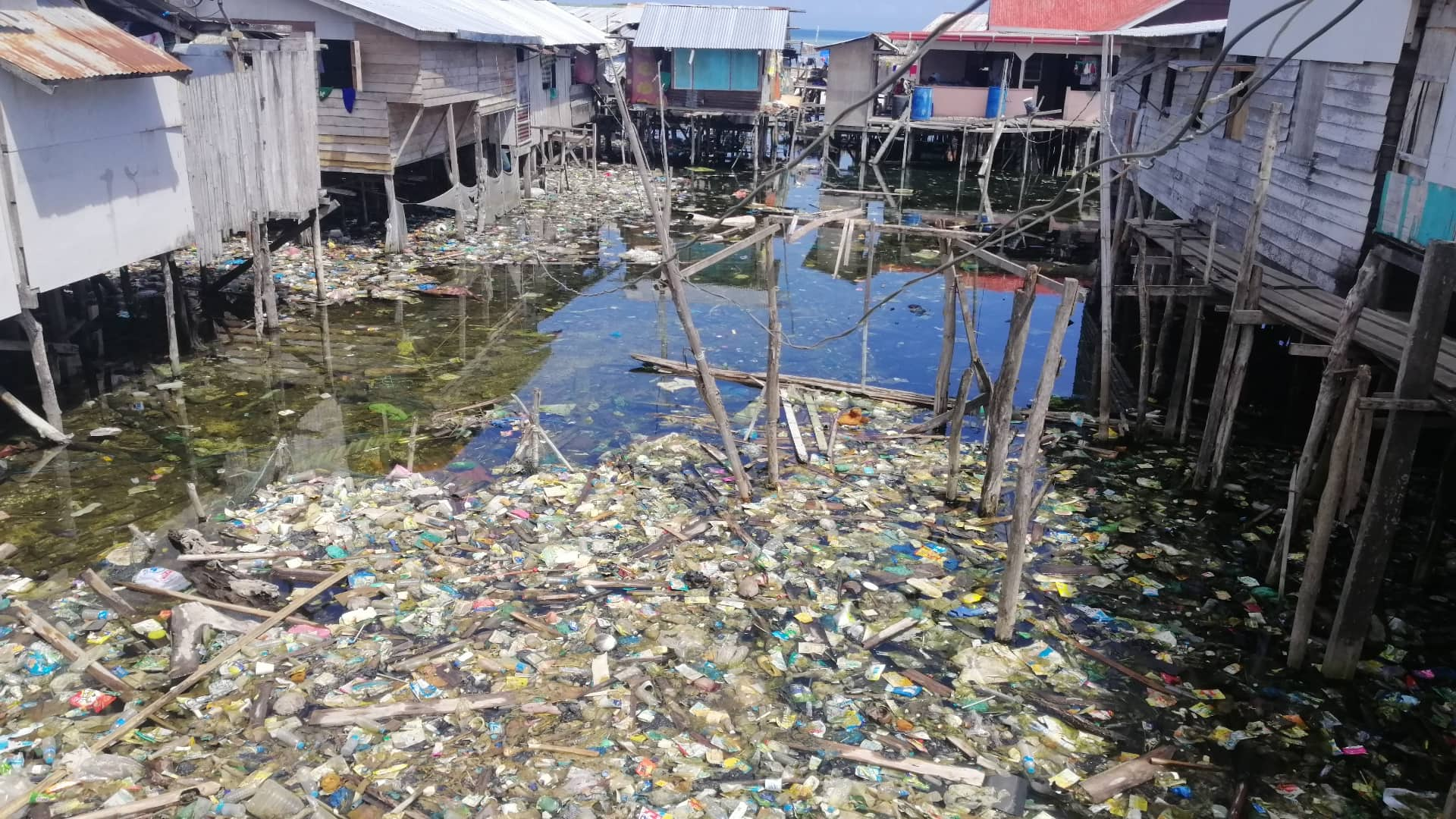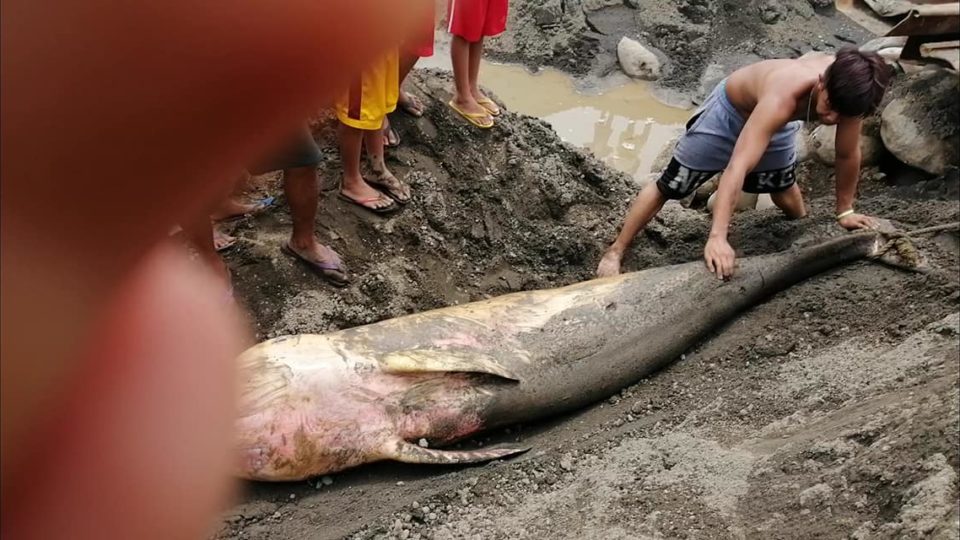Barely a month after Negros Occidental residents discovered a dead sea turtle with a plastic bag emerging from its rectum, yet another marine animal found to have ingested plastic has washed up dead on the Philippines’ shores.
A dead pygmy sperm whale was discovered yesterday in Davao City and an autopsy has shown that its intestine was blocked with a plastic cup and a nylon rope.
Marine biologist and environmentalist Darrell Blatchley shared photos of the whale on his Facebook account yesterday. Found in the village of Matina Aplaya, the mammal was three meters long and weighed more than 200 kilos.
“Cause of Death: Emaciated, Dehydration, blocked intestine due to [a] plastic cup and Nylon rope. Stomach empty, intestines empty. Only Plastic,” Blatchley wrote in his post.
Blatchley told Coconuts Manila that whales often turn up at the Davao Gulf, which runs through all provinces of the Davao region, because the body of water is a good source of food for marine creatures.
“Davao Gulf is a biodiversity hotspot, with 34 rivers flowing into it causing it to have a lot of food for fish as well as whales and dolphins,” he said. “[The] problem is that man treats the waterways like garbage receptors.”
Read: It’s a Small World: Living sustainably in the Philippines’ sachet economy
Because of this, whales dying from consuming plastic have become a common occurrence in the Davao region. Prior to the discovery of this whale, a dead whale shark was discovered in Tagum City, Davao del Norte, in August last year. While in March, a juvenile Cuvier’s beaked whale that had eaten 40 kilograms of plastic was discovered in Compostela Valley, which lies in the southwest of the Davao Gulf.
But Blatchley said the practice of disposing garbage into the sea is not limited in the Davao region. He discovered during a recent trip to Tawi-Tawi that its rivers and creeks are also full of trash.

“The garbage problem is not limited to Davao. It is a nationwide problem for the Philippines. It’s the mentality of ‘It’s not my problem,'” he lamented.
However, while lack of discipline has often been blamed for water pollution in the Philippines, the Global Alliance for Incinerator Alternatives (GAIA) said it’s the unabated use of single-use plastic that is causing this issue. In a study they released in March, GAIA discovered that some towns cannot recycle about 30 percent of garbage they collect because they are made of plastics.
The country’s plastic problem has become so severe that a 2017 Greenpeace study identified the Philippines as the world’s third-biggest source of plastic ocean pollution.
The organization said this is due to the Philippines’ sachet economy, where many products are sold in small packets because they’re the only ones that many Filipino consumers can afford.
Read: Planet Plastic: The undying plastic problem on Manila’s Baseco Beach (Video)
https://www.youtube.com/watch?v=L1LOrfKPXSE




